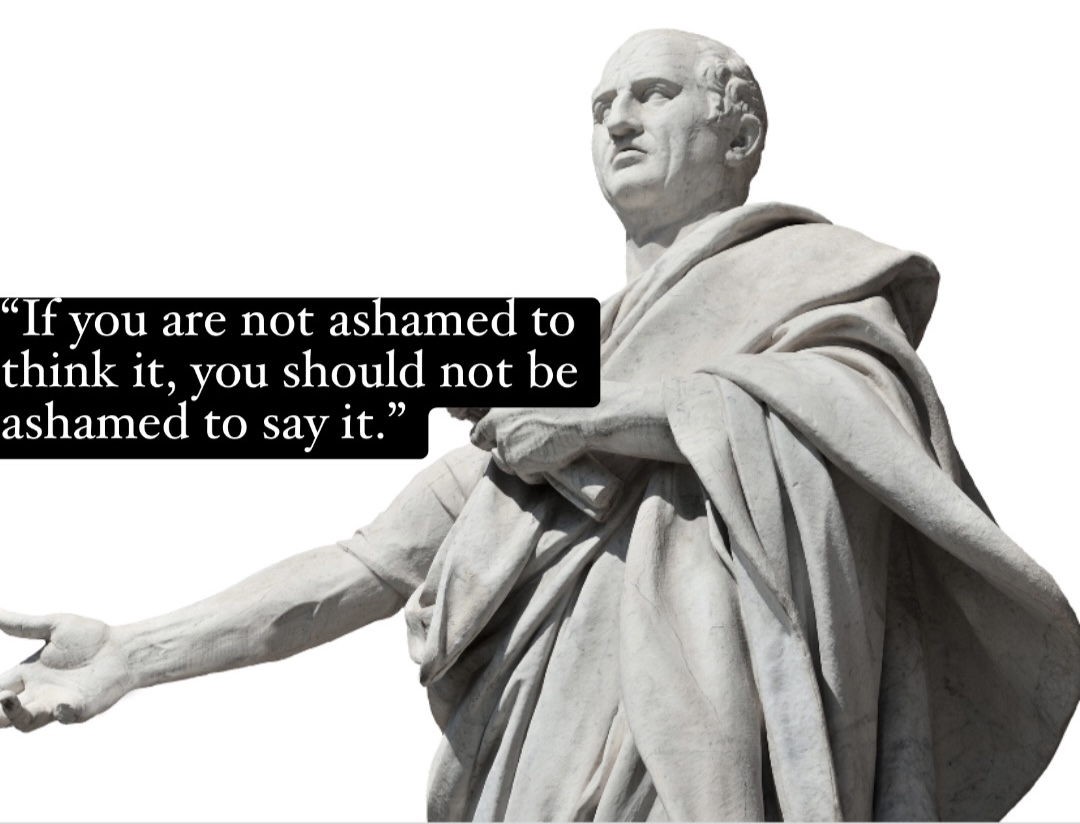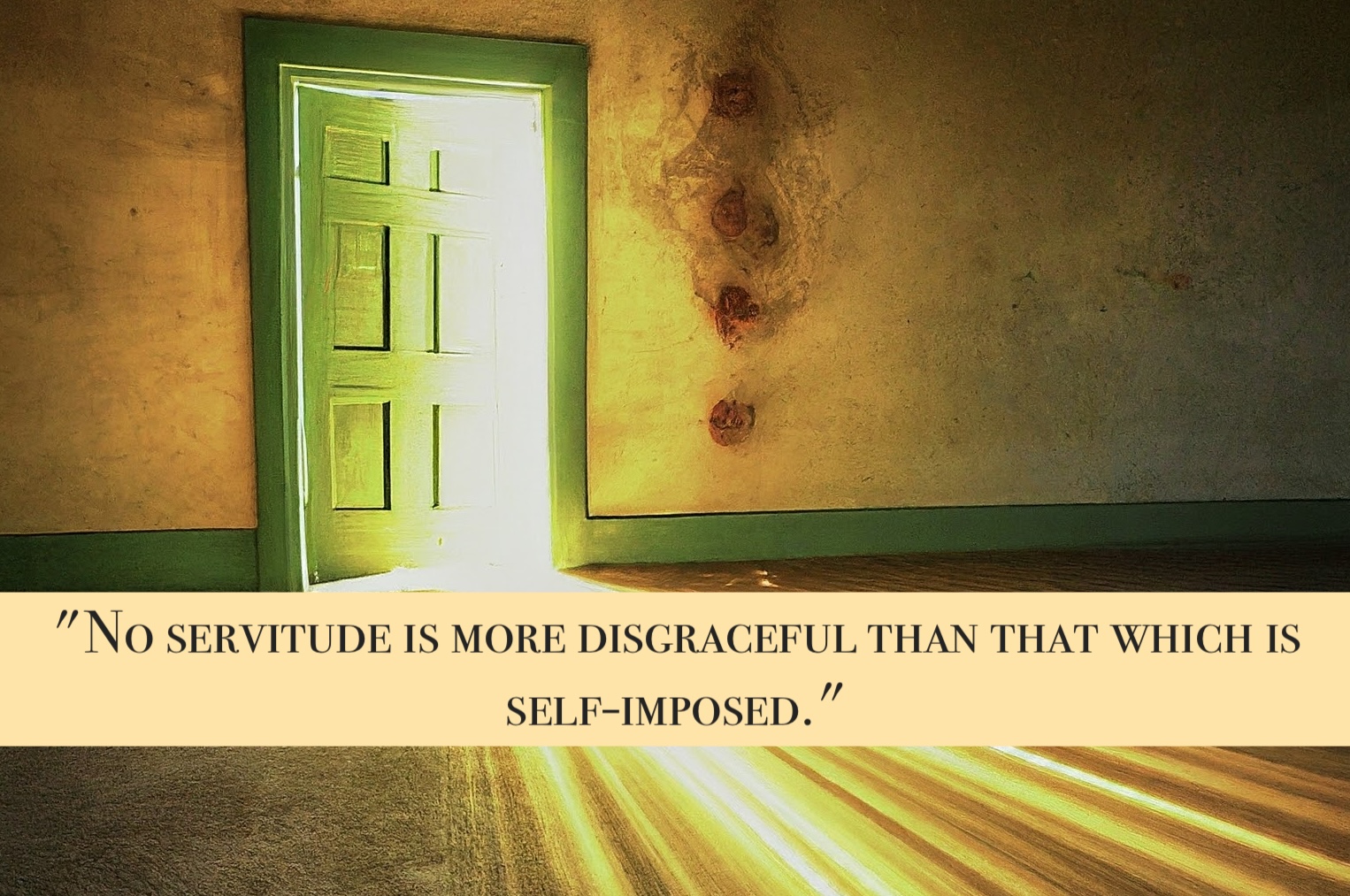Lessons From Cicero (IM 982)

Marcus Tullius Cicero, born in 106 BC, was one of the leading political figures of the era of Julius Caesar, Pompey, Marc Antony and Octavian. Cicero’s human ideal was the “first man of the republic, “the peacemaker,” and the “keeper and guardian” in times of crisis. This ideal man would have a command of Greek philosophical theory and be experienced in Roman politics and oratory. His philosophical ideal was a combination of theoretical skepticism and practical Stoicism.
Lived more than 2000 years ago, there are lots of wisdom to be absorbed from this wise ideal man. Enlightenment thinkers including John Locke, David Hume, Montesquieu and Thomas Jefferson all borrowed thoughts and turns of phrase from Cicero. The first century critic Quintilian said that Cicero was “the name, not of a man, but of eloquence itself.”
Here are some wisdoms from him:
- Death is an achievement:
Yes, all the philosophers believe death is a distant sound of thunder in a picnic. As being a big believer of practical stoicism, Cicero also believed death is not only unavoidable but as an achievement. He also said, "To study philosophy is nothing but to prepare one’s self to die.” And he is true if you stop and think and retrospect about it. He said -"Therefore, when the young die I am reminded of a strong flame extinguished by a torrent; but when old men die it is as if a fire had gone out without the use of force and of its own accord, after the fuel had been consumed; and, just as apples when they are green are with difficulty plucked from the tree, but when ripe and mellow fall of themselves, so, with the young, death comes as a result of force, while with the old it is the result of ripeness. To me, indeed, the thought of this “ripeness” for death is so pleasant, that the nearer I approach death the more I feel like one who is in sight of land at last and is about to anchor in his home port after a long voyage.
2. Live in accordance with your nature
This idea of living in accordance with nature comes from the founder of Stoicism, Zeno. Natural law is the ultimate source of guidance; it is in accordance with nature that no one should act in a way that preys on the ignorance of another. No greater obscenity in life can be found then when wickedness cloaks itself with the pretense of intelligence. Cicero relates the nature with his ideology towards politics. According to him, the state exists to uphold laws which are in harmony with the universal principles of nature. If a state does not uphold right reason in agreement with nature, it is not a state.
3. The six mistakes of man
Cicero once said: "Six mistakes mankind keeps making century after century;
Believing that personal gain is made by crushing others; Worrying about things that cannot be changed or corrected; Insisting that a thing is impossible because we cannot accomplish it; Refusing to set aside trivial preferences; Neglecting development and refinement of the mind; Attempting to compel others to believe and live as we do.”
What I find interesting and heartbreaking is that these mistakes are still prevailing. Even though he warned these most common mistakes that human make about 2000 years ago, we still make this and fall for it every single day.
Quotes from Cicero:
We learn nothing from history except that we learn nothing from history.
A nation can survive its fools, even the ambitious. But it cannot survive treason from within....for the traitor appears not to be a traitor...he rots the soul of a nation...he infects the body politic so that it can no longer resist.
Poor is the nation that has no heroes, but poorer still is the nation that having heroes, fails to remember and honor them.
If you have a garden and a library, you have everything you need.
We learn nothing from history except that we learn nothing from history.
A nation can survive its fools, even the ambitious. But it cannot survive treason from within....for the traitor appears not to be a traitor...he rots the soul of a nation...he infects the body politic so that it can no longer resist.
Poor is the nation that has no heroes, but poorer still is the nation that having heroes, fails to remember and honor them.
If you have a garden and a library, you have everything you need.
The wise are instructed by reason, average minds by experience, the stupid by necessity and the brute by instinct.
In times of war, the law falls silent.
What is morally wrong can never be advantageous, even when it enables you to make some gain that you believe to be to your advantage. The mere act of believing that some wrongful course of action constitutes an advantage is pernicious.
Times are bad. Children no longer obey their parents, and everyone is writing a book.



Leave a Reply
You must be logged in to post a comment.